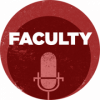This entry is the first in a series of guest bloggers I am welcoming to this space over the next year. It will be an opportunity for faculty, staff and students to share with us their Wildcat experience. In this first installment, Sarah Geegan, an integrated strategic communications graduate, current graduate student and information specialist in UK Public Relations and Marketing, recently returned from our nation’s capital where she joined fellow students and alumni for the Presidential Inauguration Ceremony. Please enjoy. -President Eli Capiluto
By Sarah Geegan
Last month I was fortunate enough to witness in person a monumental moment in United States history, the 57th presidential inauguration ceremony. Nestled under about five layers of clothing and equipped with the essentials (hand-warmers,













